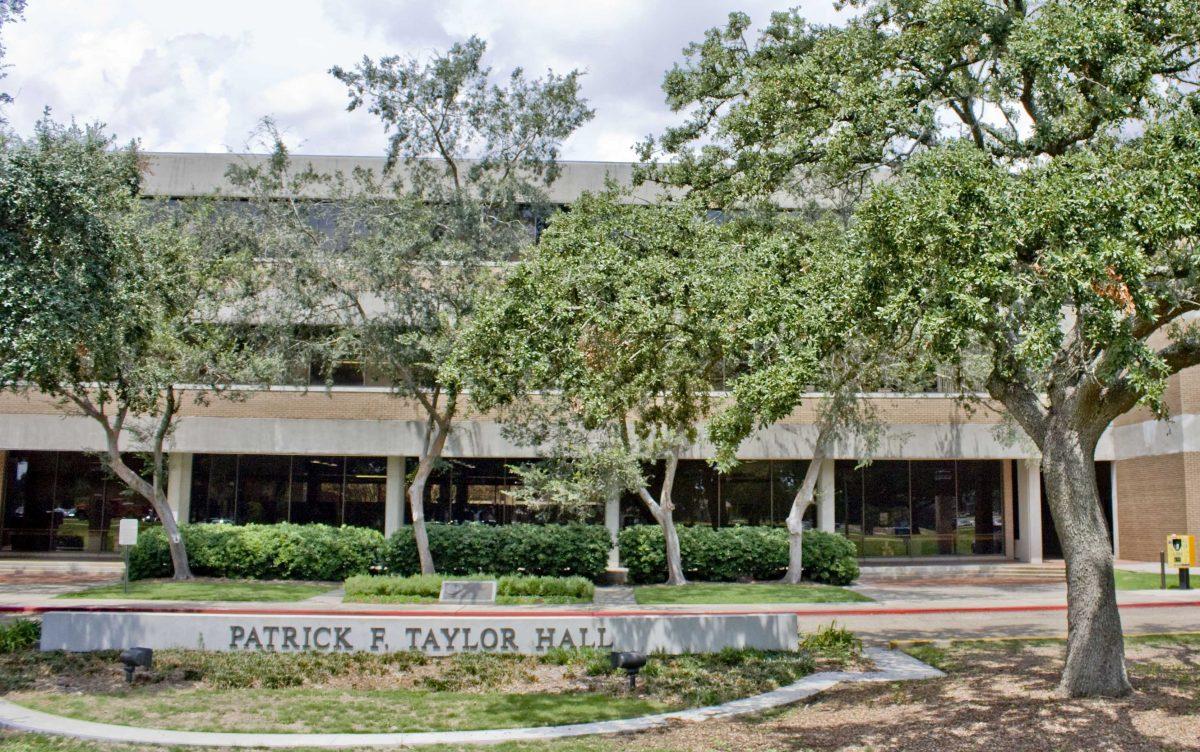Patrick F. Taylor Hall is finally getting renovated, brought to you by Chevron’s recent $2 million donation to the University.
Many corporations have enough influence over public policy already, and now they are getting involved in college education. This affects the curriculum, the professors hired and the educational value that the students get.
For many years, University donors had little control over the hiring process of professors, but that has changed. Now companies and billionaires can use their donations as leverage in order to shape public education.
This mixing of big business and education has led the country to take a rightward shift in recent economic policies. For example, the Koch Brothers, libertarian billionaires who financed the Tea Party Movement, now have 54 members in Congress. They also have donated more than $150 million to universities, including LSU.
In doing so, the Koch Brothers structured the grants with strings attached, which destroys the spirit and autonomy of universities and academia. One example occurred in 2010, when Charles Koch pledged $1.5 million to Florida State
University. The conditions included that Koch’s representatives get to have a say in the hiring of professors. With this level of control from outside donors, academic freedom is under threat ironically from a libertarian billionaire.
This is not just a Koch problem. Biotech companies have an even greater influence and the consequences are even more profound. For example, many biotech companies have patent rights to products of research and development of the universities to which they donate.
The worst examples of corporate influence in public universities would be in the medical research field. In 2010, $5.4 billion was spent on research and development in healthcare with a significant amount coming from corporations.
Often, work done at the University is patented by biotech companies that help fund the research. This occurs with stem cells, genes and other medical breakthroughs.
Although the influence of business over universities is overwhelming, there has been resistance. This year the Supreme Court struck down patents on natural DNA sequences.
At the University of Utah, Professor Mark Skolnick tried to patent an isolated human gene which leads to hereditary breast cancer. After it was patented by his biotech company Myriad Genetics, he kept it from others who wanted to do further research. The Association for Molecular Pathology filed suit and the Supreme Court shut it down because the Court felt that natural genes of humans cannot be owned.
On the surface it doesn’t seem so bad. Corporate donations are much needed because state budgets are shrinking.
As harmless as it seems, when it comes to public relations for companies, this is the best way to shift the intellectual culture of a new generation of workers and consumers.
But this has the potential for corruption and is unacceptable in a world where education is vital to a democracy.
It’s a travesty that the state government had put itself in this position of depending on corporate donations. This is why corporate donations to universities seem to be a common headliner. With the states’ cut backs on public universities, where else can the universities turn? Colleges are forced to rely on corporate donors as a result. But the largest corporate donors to public universities are also major political donors.
Coincidence?
Corporations have engineered this from the start by financing candidates who have a pro-business and anti-social welfare policy. In doing so, public universities will have no choice but to turn to the same corporations in order to keep the doors open as budget cuts set in. Because of this, corporations are gaining more influence in shaping the minds of future generations through education, which ultimately serves their business and political interests.
This level of collusion with corporations affects our academia, our health and our democracy. There are many things businesses are good at, but corrupting our higher education system should be considered academic dishonesty.
Opinion: Corporations tend to corrupt higher education
September 3, 2013
Patrick F Taylor is the beneficiary of a $2 million donation from a corporation.





